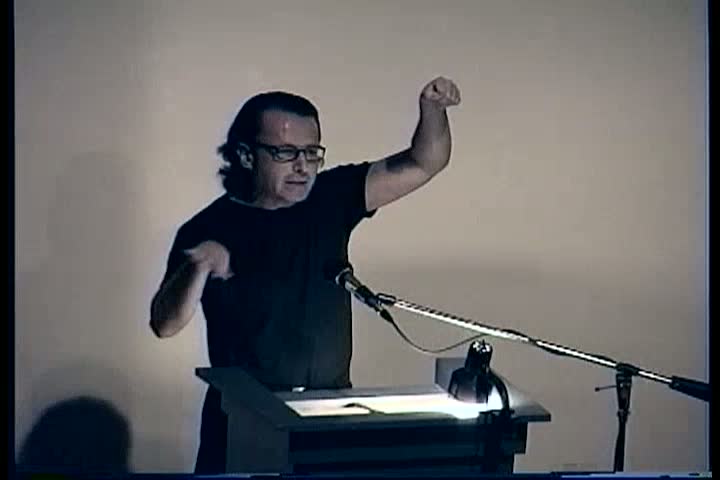| Mechanism Independence Position1 #333241 Following upon Deleuze's work, Delanda contends that there exist real but abstract mechanism-independent universal singularities that participate in the ontology of objects/assemblages. This is useful for us when thinking about patterns -- which exhibit a degree of generality, or they wouldn't be "patterns". Generality may be restricted in some cases (e.g. pattern languages for programming) and broader in others. |
Example: MathematicsThe history of mathematics might be thought of “as if” it were a long-running computational process, carried out mostly on paper. In addition, the amazing thing about mathematics per se is that it can be used to simulate physics. Computers offer another way to do simulations, typically using simple mathematics and a lot of number crunching. From the point of view of any given user, a peer produced mathematics website might be said to roughly approximate an artificial intelligence with an agent-based architecture.
Simulation and philosophyManuel DeLanda introduces the term mechanism independence in his 2011 book, Simulation and Philosophy. This is a remarkable example of a serious philosopher looking seriously at science, particularly computer science. If you want a quick summary, one is available here. I think we should care about this approach in our work with pattern languages because we're interested in describing and building real working systems with many different levels of detail. For example, we might find patterns that intersect several levels of Donella Meadows leverage points (Slide 12 from Helene's presentation for WOW5). It's not necessary to implement these systems on a computer, but if we could do that, it would almost certainly be helpful -- we would be able to see how dynamics grow and change subject to different kinds of actions. DeLanda's work suggests an exciting computational turn for philosophy!

We're interested in systems where humans are in the loop -- some of these are very general (like being alive) and some of them are very technical or disciplinary in nature (like being an architect or a computer programmer). For more technical or discipline-specific language and behavior, it makes sense to follow the ideas of Wittgenstein and think about "language games". To some suitable approximation, this seems to be what Christopher Alexander did with his initial ideas about a pattern language for architecture and construction. But if we're going to think in broad generality, we have to think about where patterns come from: in other words, we have to think about patterns in an emergent way: How does an Order emerge out of disorder in the first place? Which inconsistencies and splittings allow the edifice of Order to maintain itself? Slavoj Žižek,The Indivisible Remainder, 1996
Example: mathematics on computers
In the case of mathematical thinking, humans are in contact with a rich phenomenal world, in which they find themselves capable of drawing lines in sand or on slate, discourse with other humans, and visualization or embodied feeling-ones-way through complex mental projections. A minimum mechanism independent model of mathematical creativity should include agents and phenomena. In particular, agents exist simultaneously as part of one another’s phenomenal world, and this is referred to as sociality. The 2007 PhD thesis by Alison Pease gets at this sort of thing, and is a nice example of computational philosophy. However, the model used in this thesis only captures a small segment of mathematical dynamics.
What would we need to be able to express in order to be more general? Individual proofs can be broken down into subtrees and formal proof steps. Mathematical insight is perhaps better understood from the informal perspective of problem solving heuristics. One classic heuristic is to look for simpler versions of a hard problem and to try to solve those. Relevant social heuristics include asking for help. At any given point in a mathematical thought process, there may be many problem solving projects taking place on different levels: for example, one may be simultaneously carrying a digit, factoring a polynomial, finding a root, and designing a mechanical structure. A given mathematical theory or culture will suggest relevant approaches. Patterns: The more general case We are interested in patterns that include human -- or, more broadly social -- dynamics. "Progress" means formulating new, useful patterns. Pattern languages can be viewed as a light-weight way to do dialectics in the way this is construed by Deleuze. In brief, identifying and negotiating patterns is directly connected to formulating and working on problems. Looking at this at the "meta-level" we need to ask how a society “is able to pose the problems set within it and to it by the differential relations it incarnates.” The goal of "mechanism independence" is to do this in a precise but general way. There are different pattern templates out there that can help with this, for example, this one from the Peeragogy Handbook: Title: Encapsulate the idea – possibly include a subtitle. Definition: Explain the idea and the context in which it is meaningful. Problem: Explain why there’s some issue to address here. Solution: Talk about an idea about how to address the issue. Challenges: Talk about what can go wrong. What’s Next: Talk about specific next steps. However, there are other similar approaches that are even more abstract, and that may be even more along the lines of "pure dynamics". For instance, we could look at things in a very simple mechanical way:
Initial State
End State
Forces Acting
The role of an agent's volition as a force to be reckoned with -- or the idea that the End State is a goal -- shouldn't be neglected in human affairs. We may need a mix of humanistic models and more physics-inspired models. For example, DeLanda would call the Forces Acting a gradient. The distinction between the state of the system and the forces acting in the system feels a bit weird: in computer simulations, this becomes somewhat clearer because we're concerned with effective processes. Bringing in Guattari could lead us to think about an ontology -- not of objects -- but of processes.
|